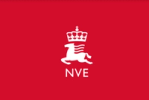“Statoil’s role is to be a technology leader. If we are to be successful in winning operatorships globally, we must be better than all the other companies at producing, refining and transporting hydrocarbons to the customer,” explains Morten Loktu, Statoil’s Technology Director. “We must emphasise our no-error policy in health, environment and safety questions. We must conduct active technology monitoring and development, because in the future we must regard Statoil as being just as much an energy company as an oil company.”
One of Statoil’s main objectives is for the first exploration well to be a production well, wherever in the world the company is participating in exploration. The reason for this objective is the reduction of exploration and drilling costs; a deepwater rig costs upwards of USD 200,000 per day. “We must be better at knowing local conditions, like understanding the seabed better in the areas in which we are operating,” admits Loktu, “It is not always the case that our experiences from the Norwegian shelf are directly transferable to the conditions off the coasts of much more southerly areas. This applies to knowledge of the geology, oil qualities and technology, and also to acceptance of local expertise.”
This is why the initial costs of penetrating new areas are high. Statoil used to invest on a broad front, but has now changed tack and concentrated on fields in Azerbaijan, Venezuela, China and Angola. In addition, Statoil has the responsibility for the Fylla licence off the west coast of Greenland. Operations in the Mexican Gulf have been wound down. “Statoil is involved in four of the ten biggest offshore hydrocarbon strikes in the world. This confirms that we are of interest as partners when new oilfields are to be developed. We are in the process of becoming an attractive player with a reputation for success.”
Good overall economics
Not far from the big research institutions of the Norwegian University of Science and Technology (NTNU) and SINTEF is Statoil’s own Research Centre, where 350 people are working intensively on enhancing the efficiency of processes from exploration to refining, with an emphasis on effective oil production. ”
Statoil is a small company by international standards. If we are to be attractive as partners outside the confines of Norway, we must bring a technology with us that makes the overall economics for oil production as optimal as possible. In other words, that the production price per barrel oil is as low as possible, emphasises Research Director Ingve Theodorsen.
The main thrust of Statoil’s research work is to reduce production costs and increase the recovery rate for oil and gas fields. “Our goal is to achieve an average of 50% recovery on fields where we are participating. This will depend on the costs of producing oil, because the greater the recovery rate, the greater the need for energy to extract the oil.”
Deep water
North Sea operations have contributed to considerable technological progress in the oil industry. Statoil has been among the leaders in this development. Much of the explanation is to be found in the work of the research centre: “We are a major player who has been successful in deep water,” emphasises Loktu. “We are attractive for our considerable expertise in drilling, development and operation on deepwater fields with complicated reservoir structures. Operation and development on Haltenbanken confirms this.”
Despite a number of gloomy prophecies, the Åsgard development has been a success. After only one year’s operation, the value of the oil production equals the original cost of the Åsgard A ship. Statoil’s research centre played a major role in achieving good technical solutions for the entire development. Special solutions were constructed for materials, inter alia 13% chromium steel was used in the subsea pipelines and for the first time on the Norwegian shelf cuttings were reinjected. “We feel that we have mastered floating production with subsea production systems for great depths with high pressures and temperatures and low permeability. We will use this leading technical experience when profiling ourselves vis-à-vis other nations in connection with oil licence allocations.”






